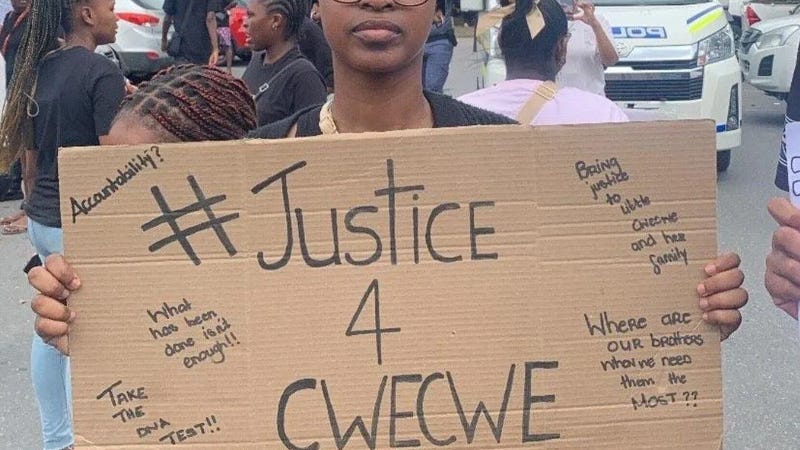A Nation in Mourning: Confronting the Epidemic of Gender-Based Violence
Honoring the victims, holding the perpetrators accountable, and demanding systemic change.
As a young South African, it has been so disheartening to watch the torment that has occurred against women in the country. Year after year, the same fight, the same struggle, the same failure by the same system makes it feel as if South African politicians, men, and society are unable to resolve such a pressing issue.
Recently, I have been following the Joshlin Smith case very closely. It has been so disheartening to hear that a child can be sold at six years of age—just a complete disregard for their future, their dreams, and their life for a quick fix.
I was sadly shocked by the Cwecwe case, where a child was abused at school. It felt as though society could no longer return to its moral strength, the strength that once ensured wrong acts did not occur to defenseless children.
But it strikes at the underbelly of South African reality. GBV is an epidemic that continues to go unsolved and unresponded to by the government. Beyond the comments of support in speeches, there is little done to resolve the problem.
Statistically, the worst state to read as a South African is that between 28% and 37% of adult men report having raped a woman. That is nearly one in three men. That leaves an impossibility for women to ever exist safely. Between 25% and 40% of South African women have experienced sexual and/or physical IPV in their lifetime.
The most thought-provoking thing I read was while scrolling through social media, trying to make sense of this: "Most men's biggest fear in jail is getting sexually abused by men. Comprehend that women have to live life like it is a prison every day." It depicted a world in vivid imagery.
The question for us is, where do we go from here? It felt just yesterday that we were coming to terms with the death of Uyinene, and as a country, we were making a commitment to improve. To take the initiative to unpack the problem and present an adequate solution. To engage in constructive discourse that finds ways for us to solve this grave problem.
Everyone should continue to support those advocating and lobbying for a solution through any means possible. Any support is better than no support—simply showing up is a step in the right direction. People will continue to take to the streets, and there will be a place to be with the masses—to understand, hear, and learn about the human rights violations that have become synonymous with South Africa.
A proactive, long-term commitment is what the country needs to invest in on all levels of society—civil society, government, and even the private sector. There are already organizations that do great work and step up where the government cannot.
A problem this large has no easy solution, no easy conversation, and no easy moments. As a country, we have to think about accountability and ways of seeking reactions that lead to positive outcomes for everyone.
This is our moment to come together—not to ostracize one another. In a moment of mourning, we must hold each other and say: we will all find a way through these confusing times. It is in the darkest of times that we dream of the sun. The sun is soon to come.
We need to keep our hopes up and stay together when the world wants us apart. Remember that throughout history, justice prevails. We may not have the answer now, but we hope to in the future.
This is not about us, but about the countless named and unnamed victims of GBV and the failed system.
Justice for Cwecwe. Justice for Joshlin Smith.
Peace will come one day…



As a fellow young South African woman myself, I’ve been trying to find the words to articulate what has been happening regarding the #JusticeforCweCwe case and the horrific state of GBV our country is in. This is the best form I've come across this far❤️🩹.